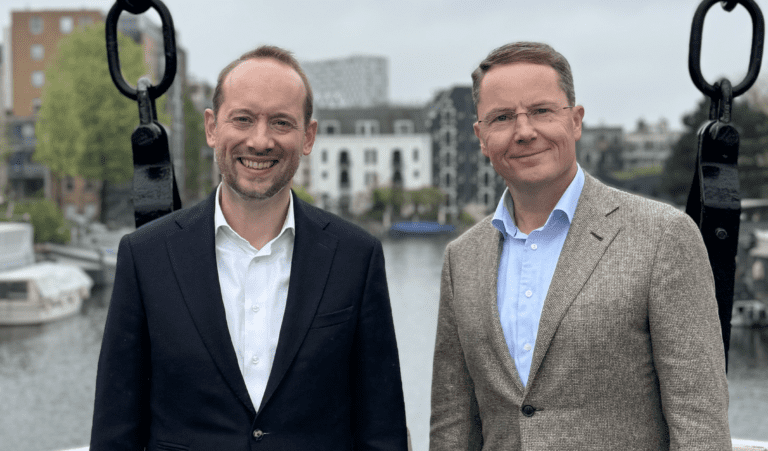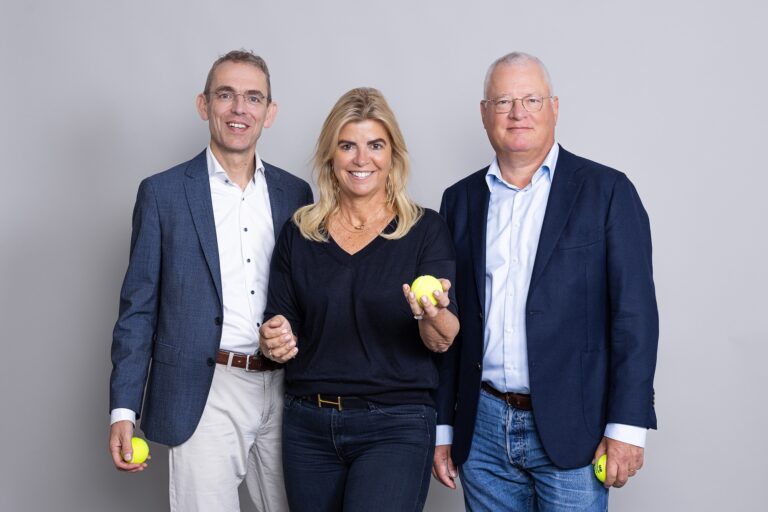
Follow the impact > How OpenUp is democratising mental health support
Rubio’s ‘Follow the Impact’ interview series, delves into the passions, motivations, and vision of the exceptional founders we have the privilege of partnering with. We want to inspire you with their amazing impact and growth ambitions, and also share some insights and learnings on the challenges they have to overcome to scale their businesses and create systemic impact.
In this interview, engineer and psychologist Gijs Coppens, CEO and founder of OpenUp and iPractice tells about the importance of mental health in the workplace, the overloaded healthcare system, the challenges he’s faced of being a startup CEO, and how he navigated through the funding process.

The OpenUp Group
For those who don’t know OpenUp, an introduction: the Dutch health tech venture OpenUp Group, is on a mission to make mental health care accessible to everyone through its two subsidiaries: OpenUp and iPractice. In 2019 Gijs started with iPractice, which is set up within the more formal ‘regular’ psychological practice that provides blended psychological care services, which means that online & chat support is interspersed with offline contact with a certified psychologist.
Shortly after the launch of iPractice Gijs already started looking at mental health from a wider perspective. He wanted to provide a solution for a broader societal challenge, so he needed to do something different and create an easy pathway for people towards mental health. Together with Floris Rost van Tonningen, the founder of Hyves – a Dutch online social media platform with 10M members before Facebook entered the market, he developed the idea for OpenUp.
OpenUp enables employers to give their employees direct, fast and easy access to certified psychologists and online tools to improve mental wellbeing through a fully digital web/app platform. As of today, they are already supporting employees of over 750+ (international) companies a.o. Rituals, McDonalds, Deloitte and Decathlon and are rapidly growing.
Gijs, what drives you to do what you do?
According to WHO (World Health Organisation) European Region, 150M people live with a mental health condition, and only 1 in 3 people receive the care they need. This lack of treatment can lead to severe consequences. I believe that offering easy and direct access to psychologists allows people to prevent and tackle issues at an early stage. And that’s exactly what we do with OpenUp. Through our platform employees and their families receive direct access (without having to go to a general practitioner first!) to health checks, self-help programs, group sessions and webinars, mindfulness training and a large team of recognized psychologists. We provide the opportunity to take on any mental challenge, no matter how small or complicated it may be.
Not long after you founded iPractice you decided to start with OpenUp. We can imagine that building two companies at the same time wasn’t easy.
Is building a company ever easy? It’s not, but the funding phase of iPractice was finished when we started with OpenUp. To be honest, the funding of OpenUp didn’t take off as expected. We started with a donation model. We asked for donations after our services had been used. On average, we received €2 per consultation, which was too little to build the company.
What did you do?
At the beginning of the pandemic, we reached out to companies that were worried about their employees’ mental well-being. We then started collaborating with organisations, many of which are international, with expats, tech companies, and scale-ups. At that stage, we decided to turn OpenUp into a subscription model with very affordable pricing.
Fast forward: you just successfully launched OpenUp in Spain and the UK, your growth average is 300 per cent a year. How far do your ambitions extend?
Our ambitions are big. It’s our mission to help 10 million people. But at the moment, our main focus is to become the market leader in the Netherlands and Germany.
What do you need to achieve this goal?
We need a lot of sales, and we need to find the right people. The demand is there, our product is good and we are adding value for as many people as possible. To achieve this goal, we need sales and marketing and for that I need extraordinary professionals. People who are aligned with our ambitious mission and can take on a performance challenge.
And what about funding, what do you need?
Fundraising will never be a hobby of mine, but it’s part of the process. Luckily, we get inbound from investors every week, and they all recognise mental health as a big challenge that needs to be addressed.
When you get so many offers, what do you base your decision on who to partner with?
I think it’s essential that you have a good connection with investors, not only professionally, but also on a personal level. As a founder, you get to interact with lots of investors, but at a certain stage, you get more attracted by some investors, and you choose those who fit best. It is always a process, like building relationships. Do you have an interest in seeing them again? And do they feel the same way?
Our vision is care where technology and people work together. If an investor then says during the conversation that humans will probably become redundant, you know it’s not a match. Another breaking point for me is the level of flexibility. We want to grow quickly, to do so we have to be able to move quickly. And then you have no use for an investor who wants to sit on the back of the carrier and takes an agonisingly long time to test every decision on direction. I therefore always ask if they want to see their influence reflected in day-to-day practice. It is really important to ask a lot about this. After all, I noticed that investors differ a lot in this area.
Let’s take a look into the future, what are the next steps?
With the growth capital in the Series A round from Rubio, Achmea Innovation Fund, Healthy Capital and Lexar Partners we were able to broaden our platform and roll it out internationally. An important step, but with the mental health epidemic rising in the western world we need to urgently grow to support as many people as possible. That’s why we are preparing a Serie B round and a defensible proposition, with a comprehensive service offering.


